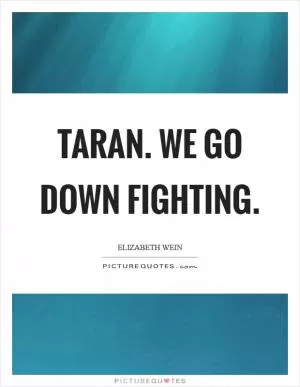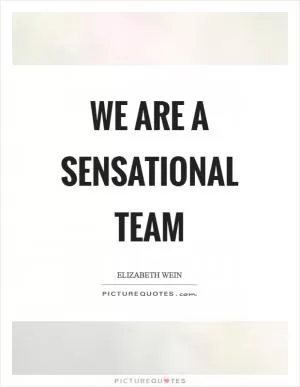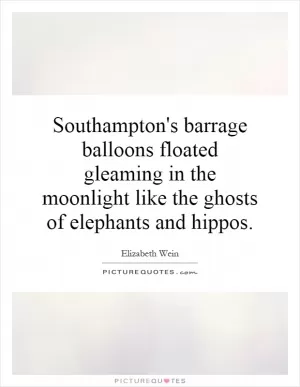The anticipation of what they will do to you is every bit as sickening in a dream as when it is really going to happen

The anticipation of what they will do to you is every bit as sickening in a dream as when it is really going to happen
Elizabeth Wein is a master of creating tension and suspense in her novels, particularly in her historical fiction works such as "Code Name Verity" and "Rose Under Fire". In these stories, the anticipation of what the characters will do to each other is palpable and gut-wrenching, whether it is in a dream sequence or in reality.One of the most striking aspects of Wein's writing is her ability to convey the psychological torment that her characters endure. In "Code Name Verity", for example, the protagonist is captured by the Gestapo and forced to write a confession under extreme duress. The anticipation of what the enemy will do to her is every bit as sickening in her dreams as it is in reality. The fear, the uncertainty, the dread of the unknown - all of these emotions are expertly woven into the fabric of the story, creating a sense of unease that lingers long after the book is finished.
In "Rose Under Fire", Wein explores the horrors of the Ravensbrück concentration camp through the eyes of a young American pilot. The anticipation of what the Nazis will do to her and her fellow prisoners is a constant presence, both in her waking hours and in her nightmares. The fear of torture, of death, of losing one's humanity - all of these fears are magnified in the darkness of the camp, where every moment is a battle for survival.
Wein's writing is unflinching in its portrayal of the brutality of war and the resilience of the human spirit. She does not shy away from depicting the horrors of violence and oppression, nor does she sugarcoat the reality of what her characters must endure. The anticipation of what they will do to each other is a central theme in her work, a reminder of the fragility of life and the strength of the human will.












 Friendship Quotes
Friendship Quotes Love Quotes
Love Quotes Life Quotes
Life Quotes Funny Quotes
Funny Quotes Motivational Quotes
Motivational Quotes Inspirational Quotes
Inspirational Quotes